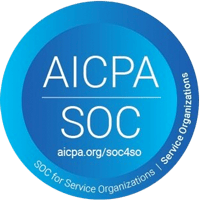”Healthcare is a people business. At the end of the day, we're all caring for vulnerable populations and we need to ensure that those people are incentivized.”
Adam Lewis, CEO of Apploi
You want your employees to look forward to a day at work. A strong healthcare culture can help improve the well-being of both staff and patients. But in the daily struggle of hiring and retention, workplace culture can often fall by the wayside. That’s why we interviewed top industry leaders at eCAP to learn how they promote a healthy workplace culture without sacrificing hiring and retention efforts.
3 Ways to Improve Healthcare Culture
”“Money should be spent on improving the culture of the facilities and nursing homes as a whole.”
Barry Munk, CEO of Marquis Health Consulting Services
You may find yourself wondering if investing in healthcare culture takes away from other HR efforts. But in reality, a strong sense of community and values can actually improve hiring and retention. As you improve your healthcare culture, you’ll develop an excellent reputation that can further attract candidates. In addition, employees who are happy with their workplace culture will be less likely to leave their roles.
How do you spend that money in a way that sees actual returns? Try the following:
- Coordinate mentorships and skill-sharing among staff.
- Celebrate the success of your employees through a gift giving program and verbal shoutouts.
- Invest in continuing education programs (such as tuition reimbursement and onsite speakers) to help your employees envision future careers.
- Check in with staff via surveys and in-person meetings to make sure that you’re spending your cultural budget in a way that feels beneficial.
Learn more about how to improve workplace culture without breaking the bank
1. Focus on Quality of Care
”“I think that there’s real investment that could be made into retaining staff, improving, constantly, their work and what they’re doing, their quality within the workplace.”
Ben Cohen, CEO of August Healthcare
One way to improve quality of care is to invest in the skills and careers of your workers. Healthcare culture improves when everyone is proud of their work and can see a future where their skills improve even further.
Here are two strategies that can help you improve your quality of care.
Offer Tuition Reimbursement
While setting up a tuition reimbursement program may take some initial effort, the returns can be incredible.
Tuition reimbursement can:
- Allow your employees to solidify their foundational healthcare knowledge and build new skills—which will ultimately increase quality of care.
- Attract new candidates and retain employees. One survey found that 79% of employees ranked tuition assistance as very important.
- Give yourself a tax break! Education reimbursement is tax deductible, up to $5,250 annually per employee.
Set up a tuition reimbursement program for nurses
Create Mentorship Programs
Tuition reimbursement can help employees move forward in their careers. But creating a deliberate career progression infrastructure can also help increase quality of care. Mentorship programs can help employees understand everything from common mistakes in their roles and how to avoid them, to how to move forward in their careers at your facility.
Learn how to set up a mentorship program
2. Provide Flexible Scheduling Options
”“Through Apploi, we’ve been able to find opportunities within our communities. Sometimes, it’s a nurse that can’t work full-time, but is looking for a part-time shift…Apploi has been a great platform for us.”
Adam Cusner, Care Management
Not all healthcare employees can commit to a traditional full-time schedule. For instance, if someone is a working parent, they may need staggered start times in order to drop their kids off at school. Some nurses, like in the example Cusner gave, may need part-time work, or would prefer to work in float pools (in other words, as an on-call nurse who fills open shifts).
But if you embrace flexible scheduling, you don’t have to miss out on the skill and expertise offered by staff with limited working hours. If flexible schedules sound daunting to you, make use of shift scheduling software. With the right software, you can ensure that you can accommodate your staff’s needs while still limiting the number of open shifts.
Here’s how to implement flexible schedules
3. Streamline Your Hiring and Onboarding Process for a Stronger Healthcare Culture
”“The industry right now is very disparate. You have all these different staffing agencies that are tech-enabled or non-tech-enabled, that the organizations are engaging with.”
Di Yu, founder of healthcare shift management platform Schedule
In other words, when agencies are involved, staffing can quickly get confusing. Many organizations rely on agencies because it saves them time sourcing and vetting candidates. But with the right software, you can save that same time all on your own.
When you rely on agencies, it can be difficult to maintain a strong healthcare culture. Agency staff often aren’t staying with your organization for long periods of time. The high costs of agencies also decreases the budget available for cultural program.
However, the right software can help you reduce your dependency on agency staff—and improve your healthcare culture. Increase your reach, hire and onboard more quickly, and schedule large numbers of staff efficiently.
Read about how to reduce agency costs
Better Hiring With Apploi
How can you improve workplace culture? When you invest in the right technology, you can tune out the confusing parts of hiring and focus on cultivating your staff and healthcare culture. Apploi streamlines your process from hire to retire. Schedule a demo today.




